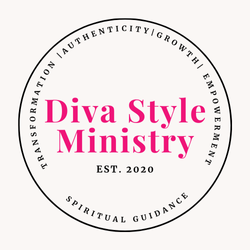Writing in a journal is not just for recording the events of your life, or how  you’re feeling at a specific time. It can also be a way of kickstarting or supporting your creative life. It’s a minimally risky, private-as-you-want way of writing down your ideas, your dreams, and your plans. It can be instructive and inspirational to read the journals of writers, artists, and actors and get an insight into how they used journaling to grow and develop in their field.
you’re feeling at a specific time. It can also be a way of kickstarting or supporting your creative life. It’s a minimally risky, private-as-you-want way of writing down your ideas, your dreams, and your plans. It can be instructive and inspirational to read the journals of writers, artists, and actors and get an insight into how they used journaling to grow and develop in their field.
Here are five ways of keeping a journal that can enhance your creativity.
1. Writing in a journal provides a safe space for your “baby” ideas
Between the pages of your journal, you can keep safe all those ideas that are just starting to form, that are not ready to be explored on canvas or turned into a short story, book, or article.
2. Writing in a journal helps to quiet your inner critic
Journaling can help shush your inner critic, that little voice that polices all  your thoughts and ideas. Research has shown that when you write without expectation, the part of your mind that censors your thoughts and feelings steps aside and lets you get on with it. Journaling, freewriting, or morning pages allow you to write for the sake of it, no editing, no agonizing. And that frees up your creative flow!
your thoughts and ideas. Research has shown that when you write without expectation, the part of your mind that censors your thoughts and feelings steps aside and lets you get on with it. Journaling, freewriting, or morning pages allow you to write for the sake of it, no editing, no agonizing. And that frees up your creative flow!
3. Writing in a journal empowers you to more fully develop your authentic voice
Journaling is freeform, occasionally messy writing. No one is going to read it unless you give them permission. Knowing that turns you loose, so you can be free to test out, play with, and build your voice. It’s a time to experiment, explore styles, and not worry if it doesn’t work.
4.Writing in a journal encourages you to express innovative ideas
 As you get into the creative flow of journaling, you free up your mind to start spawning innovative ideas – those that are different, out-of-the-box, and out of your comfort zone. The process makes space for ideas to rise, ideas you may not have had if you were trying too hard. And there’s no commitment to take any of them further unless you want to, and it feels right.
As you get into the creative flow of journaling, you free up your mind to start spawning innovative ideas – those that are different, out-of-the-box, and out of your comfort zone. The process makes space for ideas to rise, ideas you may not have had if you were trying too hard. And there’s no commitment to take any of them further unless you want to, and it feels right.
5. You can write in your journal about what matters to you
Your journal is yours and yours alone. You can write down your secret fears; you can write your truth. Once it’s down on paper, then you can decide if you want to do anything with it. You can take aspects of your truth and turn them into a poem or a painting, a song, or a symphony. Journaling gives you practice in acknowledging and embracing your truth. And your art, your music, your words will sing more authentically because of it.





